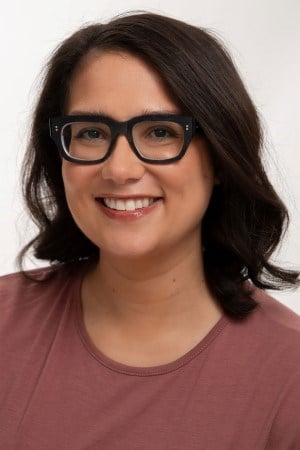
Michelle Maxson
Biography
Michelle Maxson worked in the laboratory of Andrew Darwin, PhD (NYU Langone Medical Center), where she studied the regulation and signaling of the Yersinia entercolitica Psp extracytoplasmic stress response to T3SS-induced secretin stress. Following this, she joined the laboratory of William R. Jacobs Jr., PhD, (HHMI Investigator, Albert Einstein College of Medicine) as a graduate student, and received her PhD in Microbiology and Immunology for her thesis work on the role of Mycobacterium tuberculosis intracellular metabolic adaptation in mycobacterial-macrophage interactions. Michelle completed her postdoctoral work in the laboratory of Sergio Grinstein, PhD (The Hospital for Sick Children) where she published on a variety of cell biological studies describing the regulation of endocytosis and luminal acidfication, calcium signalling, phagocytosis and fungal-host interactions, using quantitative imaging-based methods and single cell analyses.
Research
Neurodegenerative diseases, including Parkinson’s, Alzheimer’s and ALS, affect millions of people worldwide. Our current understanding of these conditions suggests the etiological basis of neurodegeneration involves the complex cross talk between genetic mutations, environmental factors, neuroinflammation and multiple cell types in the brain and periphery.
Interestingly, many disease-causing alleles, especially those affecting endocytic function, have direct deleterious effects on phagocyte populations in the brain and periphery. These cell types, microglia and macrophages, respectively, depend on intracellular trafficking pathways for their immune and homeostatic functions. Although previously underappreciated, the endocytic dysfunction of phagocytes in neurodegenerative disease likely contributes to the inflammation observed in the brain and periphery during neurodegeneration. Whether this is a direct consequence of trafficking defects on the phagocyte or an alteration in phagocyte interactions with neighboring cells or the microbiome/mycobiome, remain to be determined.
The Maxson laboratory focuses the study of (1) microglial and macrophage endocytic mechanisms that contribute to neurodegenerative disease, and (2) the putative role of fungal dysbiosis on neuroinflammation and neurodegeneration. The use of genetically tractable in vitro, iPSC, and in vivo disease models to study the interactions between cells in neurodegenerative diseases like Parkinson’s, allow us to leverage state-of-the-art 4D high resolution imaging with robust quantitation methods to strengthen the connection between phagocyte endosomal pathways and neuronal health.
Education
- 2007–2012: PhD in Microbiology and Immunology, Albert Einstein College of Medicine of Yeshiva University, New York, USA.
- 2005–2007: MS in Microbiology and Immunology, Albert Einstein College of Medicine of Yeshiva University, New York, USA
- 1997–2001: BS in Biochemistry, Manhattan College, New York, USA.
Experience
- 2023–Present: Assistant Professor, Department of Immunology, University of Toronto, Toronto, Canada.
- 2023–Present: Scientist, Cell & Systems Biology Program, The Hospital for Sick Children Research Institute, Toronto, Ontario, Canada.
- 2019–2023: Research Associate, Cell & Systems Biology Program, The Hospital for Sick Children Research Institute, Toronto, Ontario, Canada.
- 2013–2019: Research Fellow, Cell & Systems Biology Program, The Hospital for Sick Children Research Institute, Toronto, Ontario, Canada.
- 2005–2012: Graduate Student, Microbiology and Immunology, Albert Einstein College of Medicine of Yeshiva University, New York, USA.
- 2001–2005: Research Technician, Microbiology, NYU Langone Medical Center, New York, USA.
Achievements
- 2022–2023: Immunodeficiency Canada Roifman Scholar Award for Young Investigators, Immunodeficiency Canada, Toronto, Ontario, Canada
- 2013–2015: Heart and Stroke Foundation of Canada Pfizer Research Fellowship, Heart and Stroke, Toronto, Ontario, Canada
- 2006–2009: T32-AI-007506 Molecular Pathogenesis of Infectious Diseases Training Grant, National Institute of Health, Bethesda, Maryland, United States
Publications
- Maxson M.E., Abbas Y.M., Wu J.Z., Grinstein S., Rubinstein J.L. Detection and quantification of the vacuolar H+ATPase using the Legionella effector protein SidK. J. Cell Biol. 2022. Mar 7;221(3):e202107174.
- Westman J., Plumb J, Licht A., Yang M., Allert S., Naglik J.R., Hube B., Grinstein S., Maxson M.E. Calcium-dependent ESCRT recruitment and lysosome exocytosis maintain epithelial integrity during Candida albicans invasion. Cell Reports. 2022. Jan 4;38(1):110187.
- Blagojevic M., Camilli G., Maxson M., Hube B., Moyes D..L, Richardson J.P., Naglik J.R. 2021 Candidalysin triggers epithelial cellular stresses that induce necrotic death. Cell Microbiol. Oct;23(10):e13371.
- Maxson M.E., Sarantis H., Volchuk A., Brumell J.H., Grinstein S. 2021. Rab5 regulates macropinocytosis by recruiting the inositol 5-phosphatases OCRL and Inpp5b that hydrolyse PtdIns(4,5)P2. J Cell Sci. 134(7):jcs252411.
- Maxson M.E., Naj X., O'Meara T.R., Plumb J.D., Cowen L.E., Grinstein S. 2018. Integrin-based diffusion barrier separates membrane domains enabling the formation of microbiostatic frustrated phagosomes. Elife. 7: e34798

